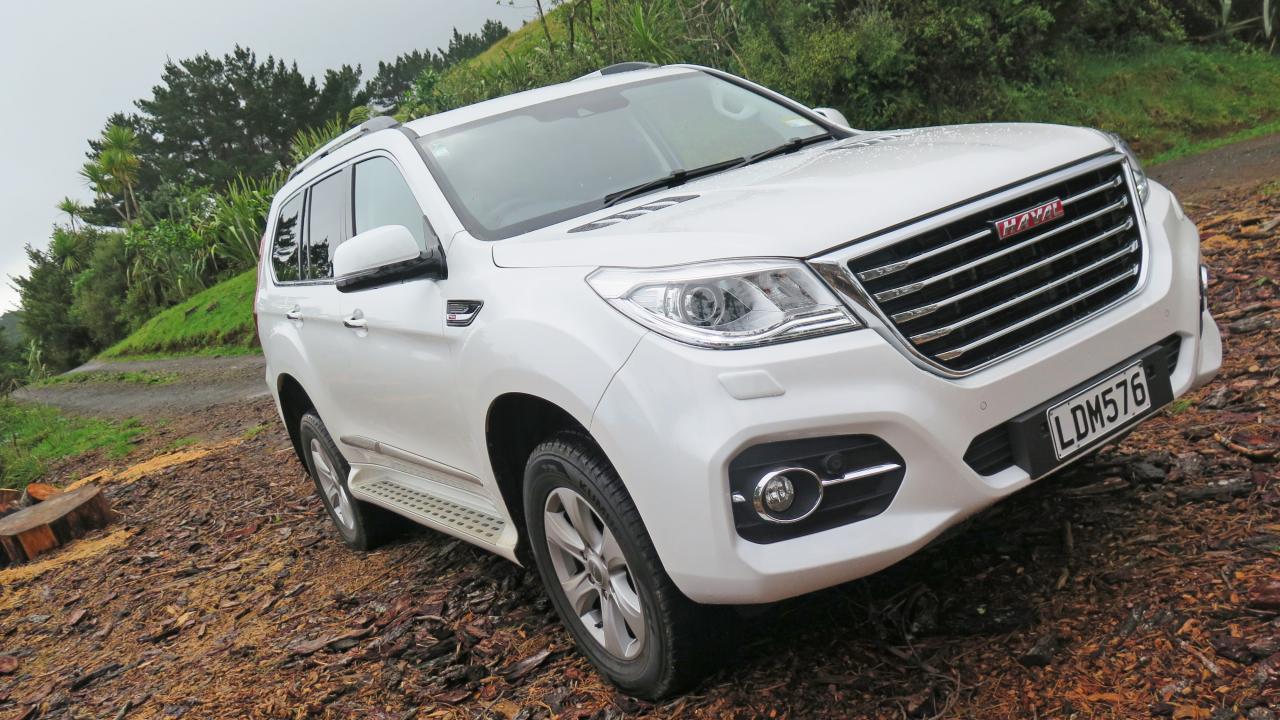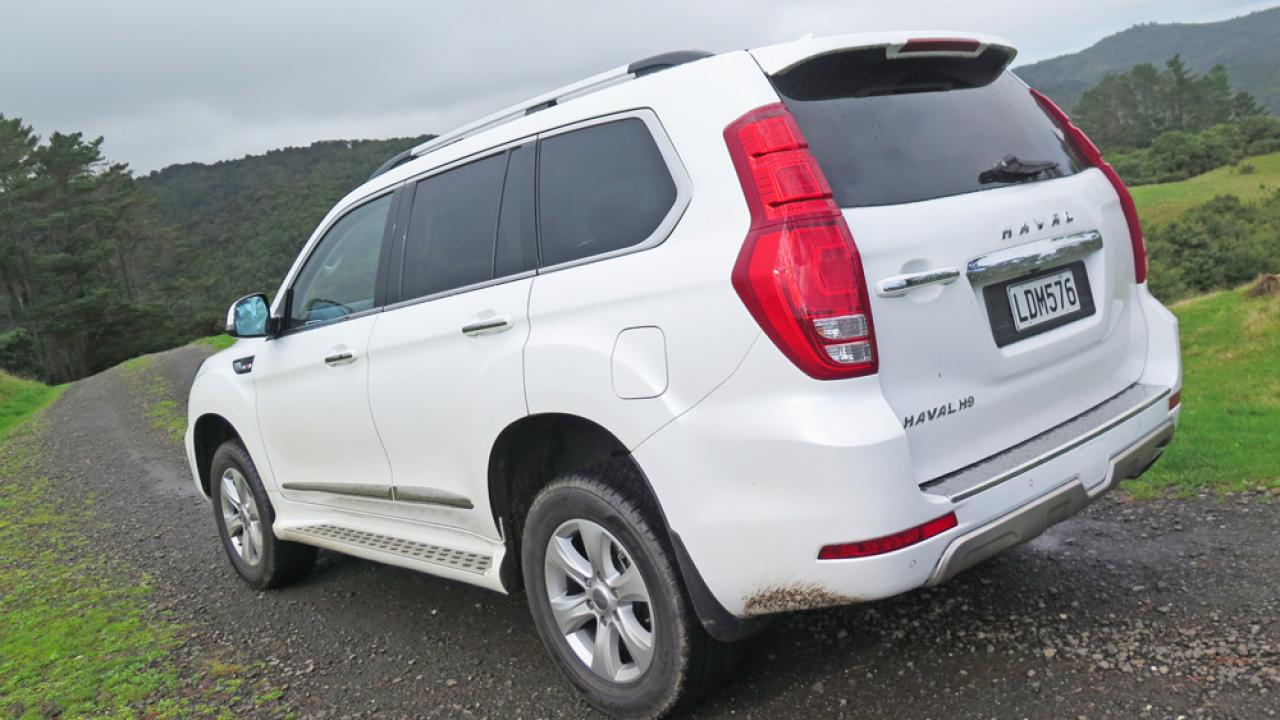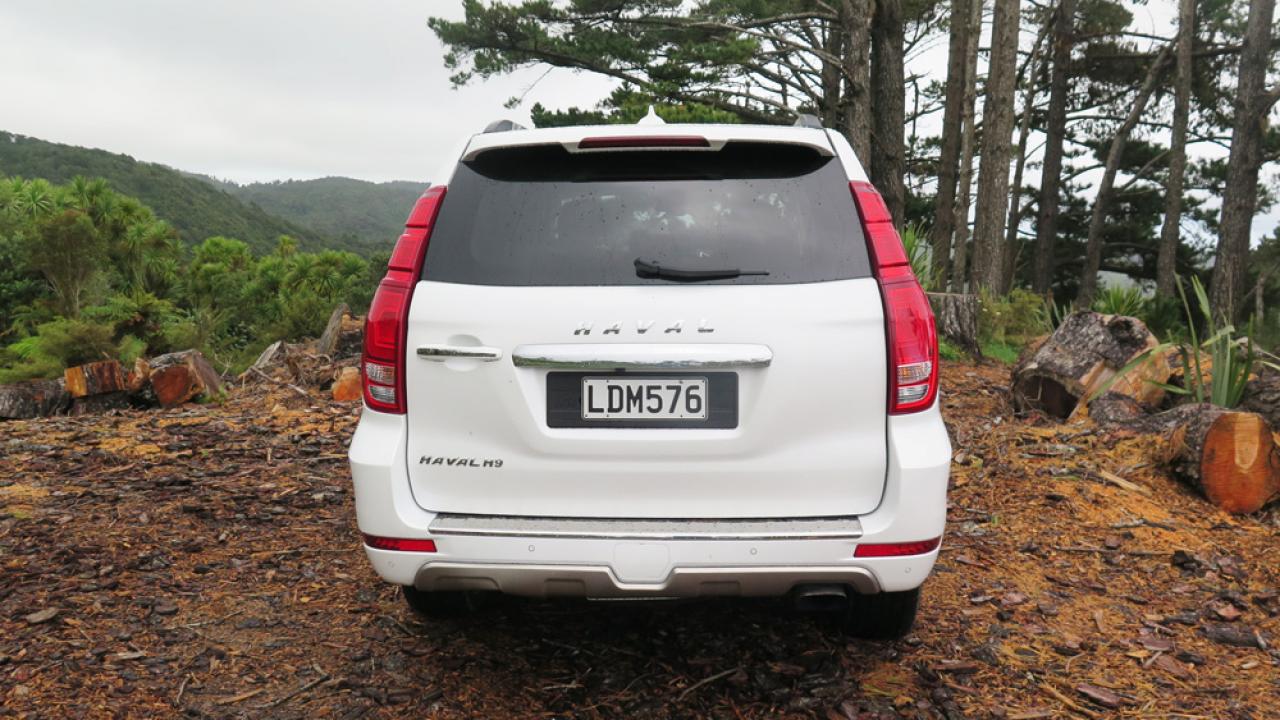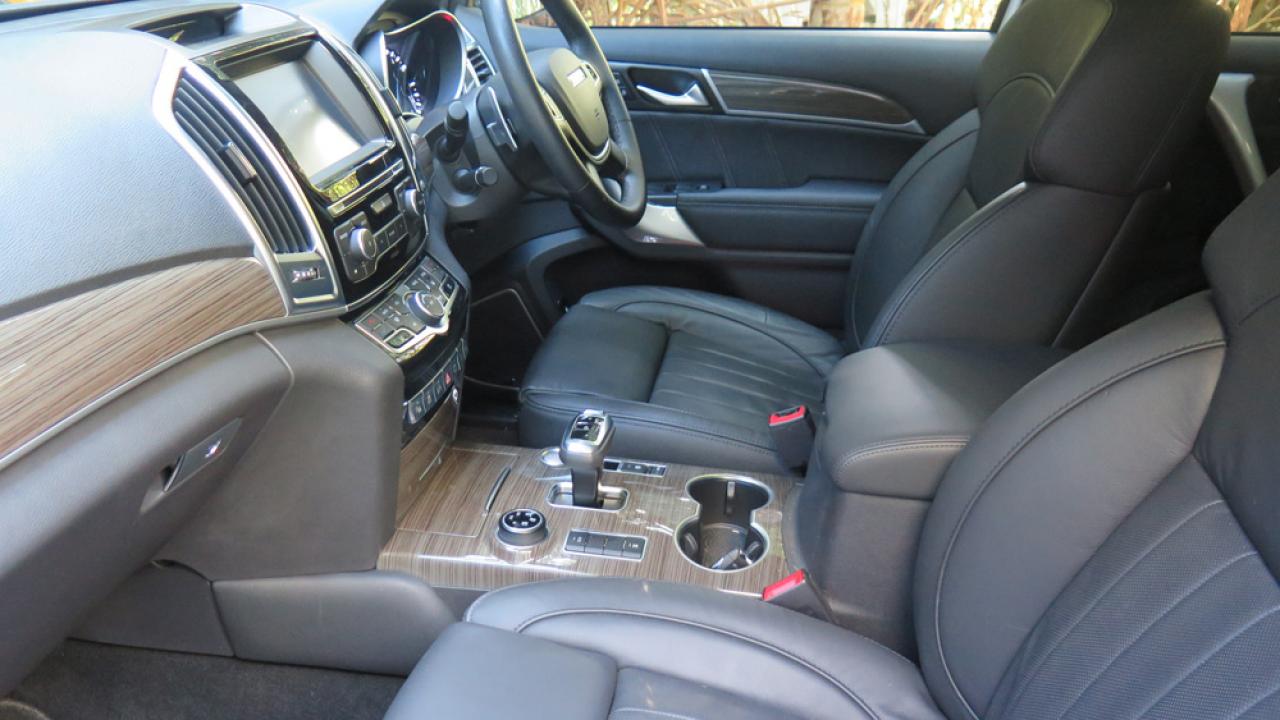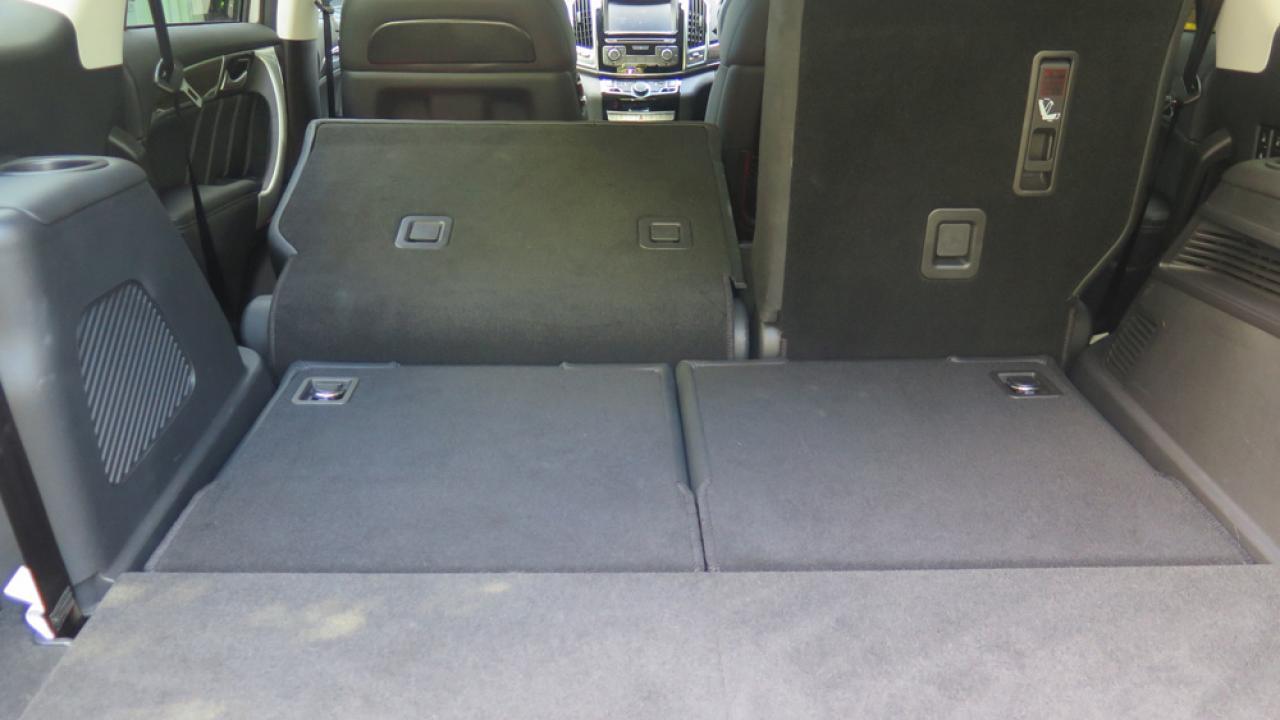Haval launched in New Zealand last year, and already the H9 has had a minor update, with power up from 160kW to 180, torque up from 324Nm to 350, and a new eight-speed ZF auto fitted to handle all that, and to improve fuel economy.
There’s also a new centre console and instrument panel, a digital speedo, and a fresh look to the front, plus 18-inch alloy wheels, an All-Terrain control system for off-roading, an electronic diff lock, blind spot monitoring, rear cross traffic alert and lane departure warning. This top-spec Ultra also gets a panoramic sunroof, a heated steering wheel – don’t knock it until you’ve tried it early on a winter morning – heated seats for second-row passengers, Comfort-Tek ‘eco leather’ seats with massage, heating and ventilation, and an Infinity sound system.
And we can tell you, cruising along up high, with the steering wheel warming your hands, the seat warming and massaging your buttocks, and that long-travel off-road suspension cushioning your ride, you feel as if you’re driving something which cost considerably more than this Haval does.
We didn’t have the opportunity to head off road, though did note fairly short gearing for first and second, which off-roaders should appreciate: the All Terrain Control was kinda wasted set to 4L just to tamp down fresh gravel on a tester’s steep driveway… That system has an auto setting, another for sand which delivers higher revs and a greater torque kick, a snow setting that’ll start you in second gear, a mud setting which also uses a BorgWarner dual-range transfer case to send torque to whichever wheels have grip, and that 4L, when you really need traction.
This engine feels lively enough at round-town speeds, indeed, you could almost suspect it of being larger – or boasting more than four cylinders. Until you check out fuel consumption, that is, for it’s pushing a good 2.3 tons along – plus occupants and luggage. And no doubt that’s also why the tow rating at 2500kg is 500kg less than the Prado folk thought this was – and less than expected from anything with a ladder frame chassis – though the lockable rear diff should help you get your boat up a wet ramp.
These adaptive front lights seemed especially clever, not only swivelling as you turn, but also adjusting as you ascend or descend hills. The handling is reasonable for this type of vehicle – it certainly never feels small, or agile, but neither does the similarly sized competition from more established brands.
Certainly the kids out back can’t complain, given their own seat-heat and air con controls, their own USB port and 12V charging socket, and the fabulous view afforded by the addition of a sunroof that measures almost 1.2 metres long. However their parents might be less happy. Sure, row three works electronically via a boot-mounted switch each side, there’s a boot-mounted power socket, load tie-down rings, a hidden cubby beneath the boot rear to tuck wallet and watch out of sight at the beach, and a tonneau cover. But the rear door is side hinged, often inconvenient when parking is tight. Access to the third row – which isn’t suited for anything other than kids – is on the driver (road) side. Those three child-seat tether points are covered by a nifty bit of plastic which is easy to flick off and will almost instantly be lost. And there seems nowhere to put that tonneau if you need to remove it and put the third row into use: okay if you plan before you leave home, not so nice if extra passengers are sprung on you once you’re at the school pickup.
If you’ve read all that and are still asking what a Haval is, it’s the premium brand under the Great Wall umbrella, think Lexus and Toyota, Accura and Honda, or Infiniti and Nissan. Our early experiences suggest the H9 is the brand’s most successful foray into export models, as well as being its biggest, and most rugged.
It’s certainly excellent value. You get a lot of kit, you get seven seats, and though there are a few minor dropped balls they’re not insurmountable.
Really, the biggest potential downsides are whether it’s reliable – early indications from Aussie don’t indicate otherwise – and depreciation, but when you fork out this little to get so much, that seems a small price to pay.
At a glance |
|
|
Models |
Haval H9 Ultra |
|
Engine |
2.0-litre direct injection petrol |
|
Price |
$47,990 |
|
ANCAP safety rating |
4 |
|
Power and Torque |
180kW at 5500rpm, 350Nm at 1800rpm to 4500rpm |
|
Transmission |
Eight-speed auto |
|
Fuel economy |
10.9l/100km |
|
Towing capacity |
2500kg |
|
2WD/4WD/AWD |
4WD with selectable All-Terrain Control |
|
Seating capacity |
7 |
|
Luggage capacity/payload |
Unknown |
Safety systems |
|
|
Lane departure warning |
Rear cross traffic alert |
|
Blind Spot Monitoring |
Reverse camera and park warning front and rear |
|
ISOFIX with x child seat tether points |
Bluetooth hands free |
|
Adaptive headlights |
Emergency Brake Hazard Warning |

